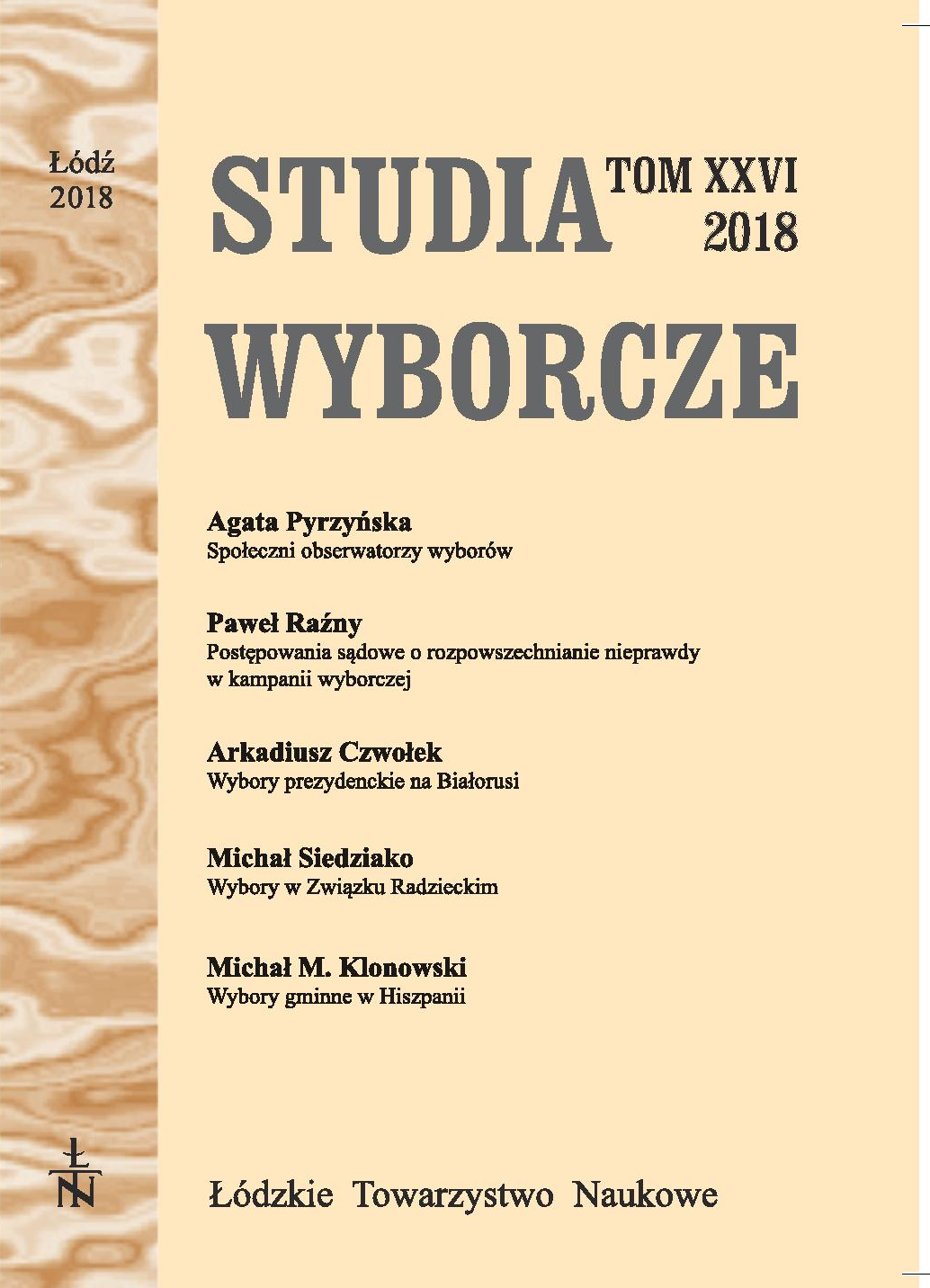Wybory gminne w Hiszpanii
Elections in Spanish communities
Author(s): Michał KlonowskiSubject(s): Constitutional Law, Electoral systems
Published by: Łódzkie Towarzystwo Naukowe
Keywords: elections; self-government; community; Spain
Summary/Abstract: Spain is a very unique country. If it comes to the political system it is a unitary state, but with many elements of a federation. It results in a very complicated internal administrative structure, and equally complicated electoral system. In this article the Author deals only with the lowest level of the local self-governmental structures: communities and smaller entities. Beginning with active and passive suffrage, and the explanation of characteristics of the administrative divisions (with the micro communities, below 100 inhabitants, being the most distinctive fact here) the Author goes deeper into the electoral system. His analysis is presenting the complexity of electoral solutions in various types of communities and smaller entities, both to the collective bodies and one-man organs. The diversification in this case is enormous. Starting with the elements of direct democracy (neighbors’ assemblies), through majoritary elections to most common proportional system. The most surprising thing here is the popularity of the indirect elections. The Author is also indicating specific management resolutions for the big cities, which also affect the electoral process to certain extend. The reasons behind such complicated solutions will be also explained. the overall analysis will also cover the social perception of the voters to such a organization of the electoral process.
Journal: Studia Wyborcze
- Issue Year: 2018
- Issue No: 26
- Page Range: 91-105
- Page Count: 15
- Language: Polish

